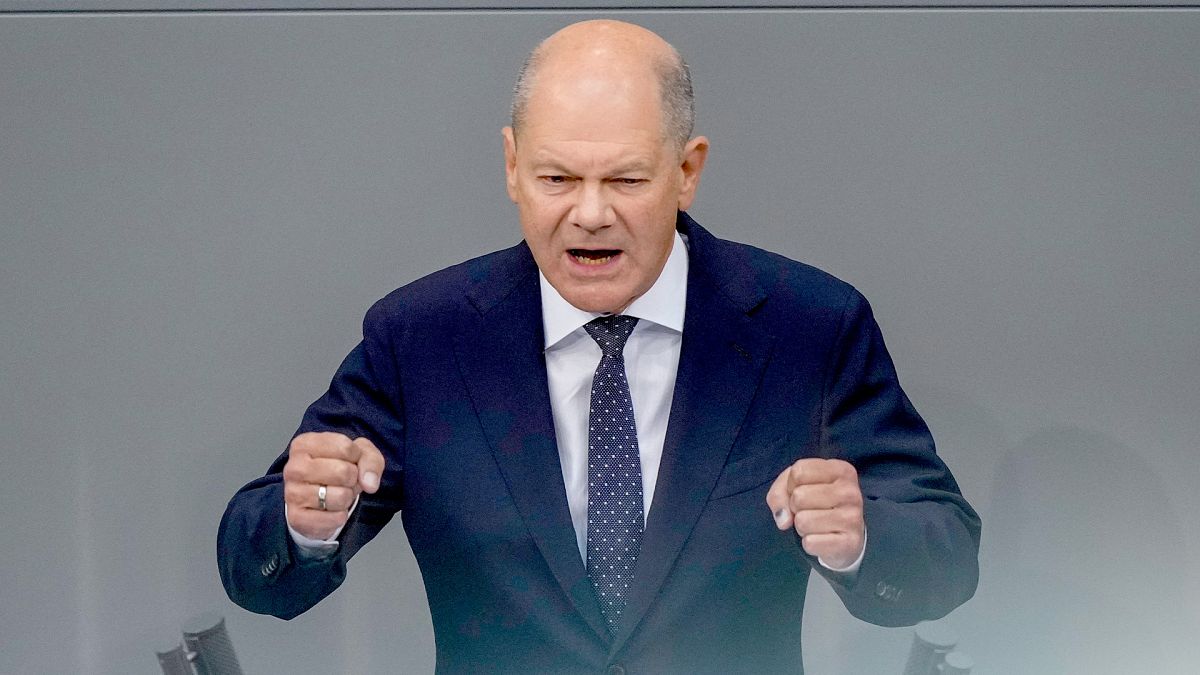Scholz gave a speech in the Bundestag in Berlin on Wednesday morning, where he discussed migration, productivity, and warned of a “big economic problem” ahead, according to international and domestic calculations.
German Chancellor Olaf Scholz highlighted on Wednesday how it could face a “big economic problem” in a few years linked to an ageing workforce.
In a parliamentary debate, he underlined the need for controlled immigration, arguing that Germany needs more skilled workers.
“There is no country in the world with a shrinking working population that has economic growth. That is the truth we are confronted with,” he claimed.
“Openness to the world is therefore necessary. But openness to the world does not mean that anyone who wants to can come. We must be able to choose who comes to Germany. I say that quite explicitly here,” the Chancellor added.
The comments come at a tense time for Germany, after three people were fatally stabbed and eight were wounded in the western town of Solingen at the end of August. The main suspect was a 26-year-old Syrian refugee facing deportation.
On 1 September, Germany’s anti-immigration Alternative for Germany (AfD) party then celebrated a historic victory in the eastern state of Thuringia, also coming second place in Saxony.
Politicians spent the last week of their campaign hammering home anti-immigration rhetoric linked to the Solingen attack.
Opinion polls suggest this boosted the AfD’s vote count in the election.
Scholz on Wednesday said his party, the Social Democratic Party (SPD), would “do everything” to challenge right-wing populists, and he also directly attacked the leader of the Christian Democratic Union (CDU) opposition party.
“You are the type of politician who believes that he has solved the migration issue with an interview in Bild am Sonntag [newspaper],” Scholz told Friedrich Merz.
“You never intended to deal with it.”
Scholz also talked up the success of laws introduced this year by the German government to facilitate immigration.
Foreigners in the country can now apply for citizenship after living in the country for five years rather than the previous eight. In special cases, the wait can be lowered to three years if efforts are made to integrate.
Scholz also highlighted during his speech that more investment in infrastructure is needed in Germany.
“We have to invest billions of euros over 10 years to renovate entire routes, because everything has been neglected for years. That goes for the streets, for the mobile phone networks, of which we have too few, and that goes for the speed of approval of industrial plants,” he argued.
Added to this, Scholz said he wants to help young people and families.
“We are giving billions to ensure the expansion of schools and kindergartens….at the same time we have to improve the growth potential of our country ,” he added.
Controversially, Scholz did not mention the fate of German carmakers in his parliamentary address.
Struggling to keep up with Asian competitors in the transition to electric vehicles, German carmaker Volkswagen recently announced it was considering factory closures on home soil.

